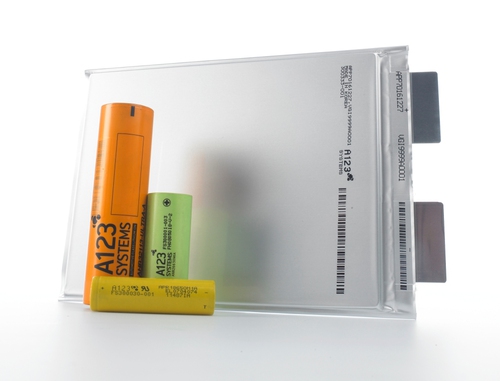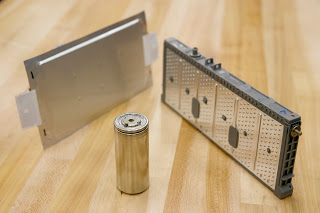In part what will drive electric vehicle adoption is the fact that electricity is a cheaper fuel than gasoline – so long as electricity rates stay about what they are today. But the price premium for today’s electric vehicles over equivalent gasoline powered vehicles make it hard to recognize the price benefit. You have to drive a lotta miles for the fuel cost savings to make up for the premium. Which leads many analysts to predict that when battery prices fall enough the fuel cost savings will automatically make electric cars attractive.
Leaving a couple big questions – at what battery price will we see the tipping point? How quickly will that occur?
One answer published recently on PlugInCars is – $180 per kilowatt-hour by 2020![]() .
.
Last weekend I heard a talk from the designer of the Nissan Leaf who claimed the tipping point would be when battery prices reached $100 per kilowatt-hour.
Today the price is thought to be $330 per kilowatt-hour or more, except some think that Tesla Motors is able to buy batteries at $250 per kilowatt-hour. A problem here is that these pricing details are not public knowledge.
The point is the price premium over gasoline powered cars. The battery pack cost is a major factor in the total cost, and looking to battery pack price reductions will reduce the cost of the overall car. If the price premium shrinks to, say, $2000 it’ll be easy for buyers to think “oh, fuel cost savings will make up for that.”
Of course, another issue is the cost of recharging in public. So far public charging stations who require a fee for usage have fees making the cost equal to or greater than gasoline. That pricing is going to make it hard for electric car owners to actually reap the fuel cost savings benefit of electric cars.
- Highway design could decrease death and injury risk, if “we” chose smarter designs - March 28, 2015
- GM really did trademark “range anxiety”, only later to abandon that mark - March 25, 2015
- US Government releases new regulations on hydraulic fracturing, that some call “toothless” - March 20, 2015
- Tesla Motors magic pill to solve range anxiety doesn’t quite instill range confidence - March 19, 2015
- Update on Galena IL oil train – 21 cars involved, which were the supposedly safer CP1232 design - March 7, 2015
- Another oil bomb train – why are they shipping crude oil by train? – Symptoms of fossil fuel addiction - March 6, 2015
- Chevron relinquishes fracking in Romania, as part of broader pull-out from Eastern European fracking operations - February 22, 2015
- Answer anti- electric car articles with truth and pride – truth outshines all distortions - February 19, 2015
- Apple taking big risk on developing a car? Please, Apple, don’t go there! - February 16, 2015
- Toyota, Nissan, Honda working on Japanese fuel cell infrastructure for Japanese government - February 12, 2015












